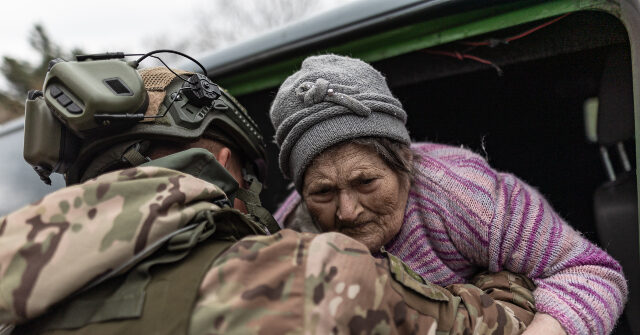The latest Gallup polling results indicate a significant shift in public opinion among Ukrainians regarding the ongoing conflict with Russia. As of the recent survey, 52 percent of Ukrainians express a desire for the war to conclude swiftly, contrasting with 38 percent who advocate for continued fighting until the country achieves victory. This marks a notable change from the early months following the full-scale Russian invasion in February 2022, during which a remarkable 73 percent favored persevering in the fight for victory. As time has passed, support for an unwavering commitment to victory has dwindled, with only 63 percent maintaining that stance in 2023, while the inclination towards negotiated peace has risen sharply to 52 percent—the first time this sentiment has reached a majority.
The evolution of public sentiment clearly showcases a growing fatigue among Ukrainians amid the ongoing hostilities. In the immediate aftermath of the invasion, the majority stood resolutely against the Russian aggression, but disillusionment appears to be taking hold. Support as a whole for continued fighting has diminished across all regions, including Kyiv, where approval ratings have decreased by a substantial 39 points. In eastern and southern areas, which have faced intense conflict since the onset of the war, support for the fighting declined even more noticeably—by about 10 percent relative to the national sentiment in the early months. The persistent toll of the war and the immediate impacts of the conflict could be contributing to this fatigue, prompting a reconsideration of strategies among the populace.
When examining how Ukrainians envision the resolution of the conflict, those advocating for a prompt end to hostilities frequently acknowledge the possibility of territorial concessions to Russia. Although Gallup did not inquire about specifics regarding which territories might be considered for concession, it is widely assumed that the Kremlin would demand control over Donetsk and Luhansk, regions already declared as “independent republics” by Russia. These sentiments raise difficult questions about national sovereignty and the future of Ukrainian territorial integrity. The Russian government has signaled a potential openness to negotiations, hinting that a dialogue could be possible under a Trump administration, especially if these eastern territories remain on the table.
On the opposite side, President Volodymyr Zelensky has staunchly rejected any agreements that would involve ceding Ukrainian territory or sovereignty, firmly insisting on a complete withdrawal of Russian forces as the foundation for peace. His proposed five-point “victory plan” emphasizes strong commitments from NATO to deter future aggression from Russia. However, this has met with dismissive responses from Moscow, leaving the prospect of negotiations clouded by uncertainty. This dynamic illustrates the stark contrast between the leadership’s firm position and the emerging public sentiment, as polls indicate a growing number of Ukrainians may favor concessions as a path to peace.
Interestingly, while public perception has shifted regarding the notion of victory, there remains a clear desire for Ukraine to uphold its sovereignty. Just two years ago, an overwhelming 90 percent of Ukrainians believed that true victory would necessitate the eviction of Russian troops and the restoration of control over Crimea, which Russia annexed in 2014. Today, however, that percentage has decreased to 81 percent, indicating a subtle but significant modification in the benchmarks for what constitutes a victorious end to the conflict. This shift could stem from a variety of factors, including military realities on the ground and the long-term costs associated with ongoing warfare.
In terms of international engagement, Ukrainians show a preference for the European Union and the United Kingdom to take the lead in peace negotiations rather than the United States, regardless of the outcome of the 2024 U.S. presidential election. This preference underscores an evolving perception of the role of international actors in facilitating dialogue and potentially resolving tensions. As Ukraine navigates its complicated relationship with Russia and grapples with the potential for territorial concessions, the sentiments reflected in these polling results point to deeper issues of national unity, long-term strategy, and the collective desire for a resolution that protects the core interests of the Ukrainian state. The changing landscape of public opinion will likely continue to shape the discourse surrounding Ukraine’s approach to peace and the future of its territorial integrity.

